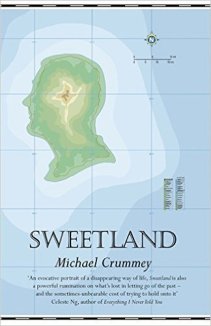I’m not sure if this post is spoilerish or not. I’m not giving away anything on the crime resolution, but I have Thoughts on the way the book ends. Many reviews on Goodreads that aren’t hidden make similar references.
 This has been in and out of my wish-list for ages – I’d read a review and add it, then I’d read another and would take it out. It happened at least 4 times. But I found myself at the airport, having finished my book during the previous flight and with another 5-hour flight ahead of me (yes, I know, how could I have planned it so badly?!!). In the Woods was the only title in the airport’s small bookshop that rang a bell.
This has been in and out of my wish-list for ages – I’d read a review and add it, then I’d read another and would take it out. It happened at least 4 times. But I found myself at the airport, having finished my book during the previous flight and with another 5-hour flight ahead of me (yes, I know, how could I have planned it so badly?!!). In the Woods was the only title in the airport’s small bookshop that rang a bell.
I enjoyed it, but the resolution was extremely frustrating, bordering on the insulting.
It’s a mystery novel that uses the recent plot trend of one mystery forcing the protagonist to go back to his/her childhood neighborhood/small town, the scene of another mystery, that remained unsolved for 20 years.
Thumbs up for the the Dublin setting and the insight into Irish police procedures. The book became famous because it’s more “literary” than your usual crime novel. The language is elaborate, and care is give to description and character building. I’m completely behind French on that, and though she was very successful… but the ending…
Maybe she took the “literary” angle too far. In literary fiction I’m ok with unsolved mysteries, unanswered questions, and bad guys that are known but not brought to justice – but it’s SO frustrating in a crime novel. Especially if the book is part of a series clearly marketed as crime, vs. for example, a stand alone novel that bridges genres, like The Collector.
A different ending would have made In the Woods a very near-perfect mystery novel for me.
I’d be very interested in your thoughts on this, especially if you’ve read it!
***
Other thoughts: Fyrefly’s Boom Blog, Rhapsody in Books, Joyfully Retired, Literate Housewife, Always with a Book, Belle Wong, BooksPlease (yours?)


 A disclaimer that Lyndsey (
A disclaimer that Lyndsey (



 One of my favorite
One of my favorite  I thought it’d be easy to pick out the author’s favorite wife, but she remains very professional, and we only notice her personal voice when she allows herself a bit of sarcasm, usually at the expense of King Henry (all those masons hurriedly changing coat of arms; the French Kings receiving yet one more report of a new wife at the English Court).
I thought it’d be easy to pick out the author’s favorite wife, but she remains very professional, and we only notice her personal voice when she allows herself a bit of sarcasm, usually at the expense of King Henry (all those masons hurriedly changing coat of arms; the French Kings receiving yet one more report of a new wife at the English Court). The enthusiasm in
The enthusiasm in 
 Sweetland is the story of a 70-year-old man resisting the resettlement of the island where his family has lived for 12 generations. At the start of the book he’s one of the only two people who still hasn’t signed the very profitable deal to leave the island. There’s major pressure from his neighbors to take the money because it’s a “all or none” deal and he starts being a victim of pranks and anonymous threats.
Sweetland is the story of a 70-year-old man resisting the resettlement of the island where his family has lived for 12 generations. At the start of the book he’s one of the only two people who still hasn’t signed the very profitable deal to leave the island. There’s major pressure from his neighbors to take the money because it’s a “all or none” deal and he starts being a victim of pranks and anonymous threats. Happy 25 April everyone! Day of Freedom,
Happy 25 April everyone! Day of Freedom, 



